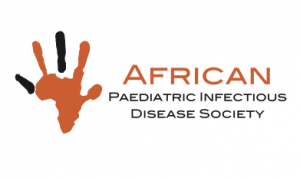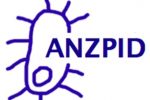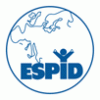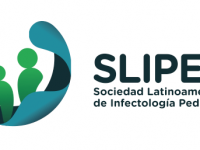African Society for Paediatric Infectious Diseases (AfSPID)

AfSPID was formally established in November 2012 after an informal session at the 26th International Paediatric Association held in Sandton, South Africa in August 2010, where considerable interest was shown by African delegates. The first African country to establish its own paediatric infectious diseases society was Nigeria (NISPID) in 1999, followed by South Africa (SASPID) in 2008.
The AfSPID constitution was approved in January 2015. AfSPID has a president (M Cotton, South Africa), 2 vice presidents (Adegoke Falade, Nigeria and Amha Mekasha, Ethiopia). The continent is divided into regions: West Africa – Adegoke Falade (Nigeria), John Yenon (Cote D’ Ivoire); East Africa – Amha Mekasha (Ethiopia), Sabrina Bakeera-Kitaka (Uganda) Judy Orkiiriza, (Rwanda), and Mohammad Issack (Mauritius); Southern Africa – Brian Eley and Mark Cotton (South Africa) and Mutsa Bwakura-Dangarembizi (Zimbabwe) and Central and North Africa – Gisêle Kazadi (Democratic Republic of Congo) and Maha Hamdi (Egypt).
AfSPID aims at continent-wide communication for colleagues on the continent. Affiliation to WSPID is important for this African focus, with subjects addressed in the biennial WSPID conferences since 2011. Themes have included HIV in children, millenium developmental goals in Africa and outbreaks (Including how Nigeria limited the recent Ebola outbreak and various outbreaks in North Africa.
A newsletter is published one to three times every year, featuring subjects of interest. Some of the published papers are based on talks that were delivered in the AfSPID regional sessions at biennial WSPID conferences. For contributions, please contact Prof. Brian Eley and for back copies, Natasha Samuels
Important roles for the Society include the following:
- Communication;
- Sub-specialist education;
- Forum for continuing medical education;
- Promotion and collaboration in relevant research;
- Promote the interests of children through prevention and treatment of infectious diseases.
Asian Society for Pediatric Infectious Diseases (ASPID)
Australian and New Zealand Paediatric Infectious Diseases Group (ANZPID)
Exchange of information and ideas – among those with a special interest in paediatric infectious diseases.
Education – through multiple modalities: a monthly journal club contributed by members across Australia and New Zealand; the organisation of annual clinical meetings; symposia at the annual ASID conference; communication of important paediatric infectious diseases updates; publication of reviews and clinical guidelines.
Research – fostering and promotion of collaborative research among group member institutions across the region, and highlighting research opportunities in the field of paediatric infectious diseases.
Advocacy – through the voicing of a collective opinion and advocating on issues of importance to children with infectious diseases, and their inclusion in policy, guidelines and funding opportunities. ANZPID also acts as an advisory group to represent and advocate for paediatric infectious diseases in national professional committees or forums.
Interaction with other PID societies – engagement with other PID societies, at regular international meetings and other events, and including visits to and from member institutions, to facilitate meaningful cross talk and collaboration related to paediatric infectious diseases.
European Society for Paediatric Infectious Diseases (ESPID)
The mission of ESPID is to promote excellence in pediatric infectious diseases and child health. To accomplish this purpose the objectives of ESPID are:
- To promote the exchange of information among people who have expertise in the field of pediatric infectious diseases (by organizing regular scientific meetings, forming international study groups and networks, participation in advisory boards of other societies, organization of symposia at other international congresses, and through joint publications by members’ publications in the Pediatric Infectious Diseases Journal and other journals).
- To support the information and function of independent units (e.g. sections, departments, divisions) in order to encourage progress in the field of infectious diseases in childhood. Training and further education in the field of infectious diseases and research, particularly basic research, as well as clinical care shall be given priority.
- To carry out co-operative studies in Europe in the field of prophylaxis, diagnosis and treatment of infection in childhood.
- To provide further education in the field of pediatric infectious diseases by organizing meetings for this purpose including annual scientific meetings, training programs and educational workshops, making fellowship and travel awards and fostering official publication of scientific proceedings and other materials.
- To carry out any other measures to support the promotion of pediatric infectious diseases, as determined by the Annual General Meeting.
Pediatric Infectious Disease Society (PIDS)
PIDS membership encompasses leaders across the global scientific and public health spectrum, including clinical care, advocacy, academics, government, and the pharmaceutical industry.
From fellowship training to continuing medical education, research, regulatory issues and guideline development, PIDS members are the core professionals advocating for the improved health of children with infectious diseases both nationally and around the world, participating in critical public health and medical professional advisory committees that determine the treatment and prevention of infectious diseases, immunization practices in children, and the education of pediatricians.




